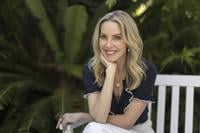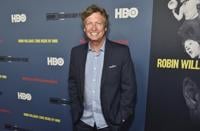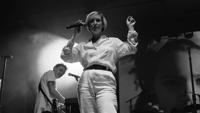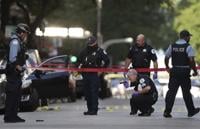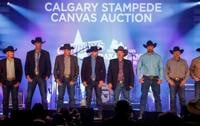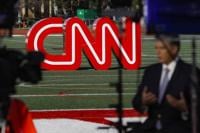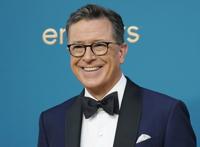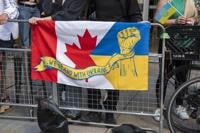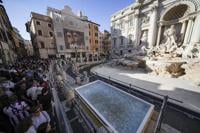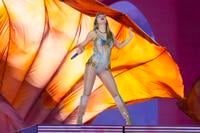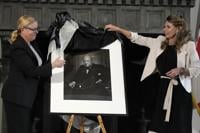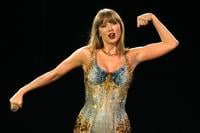When “Jurassic Park” author Michael Crichton died from cancer in 2008, he left behind numerous unfinished projects, including a manuscript he began 20 years ago about the imminent eruption of Mauna Loa, the world's largest active volcano.
Crichton's widow Sherri, who is CEO of CrichtonSun, tapped another millions-selling author — James Patterson— to complete the story. is now in stores.
Patterson is very familiar with co-authoring. In recent years and Dolly Parton, and often shares writing responsibilities on his other novels.
For “Eruption,” Crichton says she gave Patterson all of her husband's research and he came back with an outline. Some of the story needed to be brought forward to present day. “We talked probably every few weeks,” Sherri Crichton says. “It was so much fun to read. It would be hard to tell what was Crichton and what’s Patterson’s.”
Besides “Eruption," four novels have been published under Michael Crichton's name since his death, some with the . Sherri Crichton says to expect "other Michael Crichton adventures” in the future.
Crichton spoke with The Associated Press about her husband's legacy. Answers have been edited for clarity and brevity.
___
AP: You've worked hard to preserve Michael's archive. Why is that important to you?
CRICHTON: When Michael died I was pregnant with our son. I was like, “How am I going to raise our son with him not knowing his father?” So I had to go searching for Michael, and I found him through his papers, which is so remarkable. It gives me so much joy to bring things like “E���ܱ�پ��Dz�” to life, because it really does allow John Michael the opportunity to really know his father. That’s why I do what I do. It’s for the love of him and Michael’s daughter Taylor.
AP: What did you discover from those papers?
CRICHTON: Michael had structure and discipline. He was constantly moving all of his projects around. When he wrote "Jurassic Park" he was also writing four or five other books at the exact same time. He charted everything. How many words he wrote in a day, how many pages, how did that compare to other days, how long it took. Then he would have different charts that would compare what one book was doing compared to, say, for instance, “Fear” or “Disclosure.” Then he would have another chart that would track the amount of time it would take to publication, the amount of time it took to sell the movie rights, then for the movie to be released.
AP: Sometimes when people are so cerebral, they struggle socially. Did Michael?
CRICHTON: The person I knew was this incredibly kind, loving, humble, wonderful man that was a great father and incredible husband and fun to be around. I will say he was famous for his his pregnant pauses. When writing a book, the pauses would be longer. You didn’t know if he was really at the table. He was working something out and he would isolate to land that plane.
At first it was very shocking when he was in the zone, but I learned to very much respect that. Like, “I’m not going anywhere. He’s not going anywhere. And I can’t wait to read the book.”
AP: When do you feel closest to Michael?
CRICHTON: I still live in our home. I still have the office, which is at home. I honestly feel that he’s always in the other room writing. I really don’t ever feel disconnected to him. And our son is such the spitting image of him. John Michael has never known his father, and he has some of the exact characteristics of Michael. He’s very cerebral. He’s very articulate. He’s a sucker for a great book and research. And he’s a really good writer.


